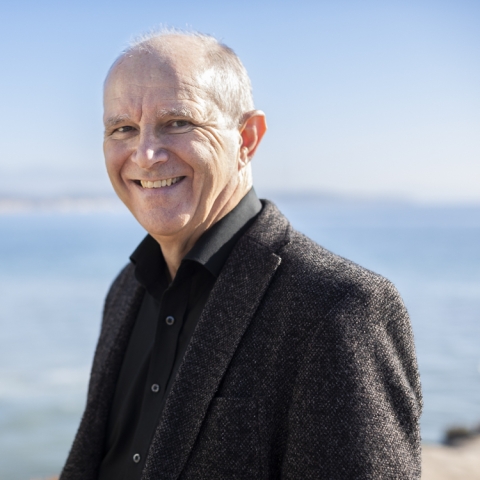
COP28: ‘Historic failure’ by richest countries as the poorest are hit hardest by global warming
In the wake of COP28, the latest international conference on global warming and related climate change, mainstream headlines have declared a “winding down” and “transition away” from the fossil fuel consumption that’s been heating the planet since the Industrial Revolution.
But for many who’ve been paying close attention to the existential threat of such warming and how world leaders respond to it, the 28th Conference of the Parties to the UN Framework Convention on Climate Change — held from Nov 30 to Dec 13, in Dubai — failed to impress.
“The aspirational language coming out of COP28 may be a historic step up from previous decisions, but given the lack of any real commitments, there is nothing to celebrate,” said Raymond Clémençon, who has been paying attention for more than three decades, initially as a Swiss representative to early climate conferences from 1990 to 1994 and more recently as an international climate politics expert and global studies lecturer at UC Santa Barbara.
In his June 2023 paper for the Journal of Environment & Development, "30 Years of International Climate Negotiations: Are They Still our Best Hope?," Clémençon writes that “30 years of international climate talks have not prevented the globe from heating up more than 1 °C over post-industrial times, nor have they kept the year 2022 from breaking new temperature and extreme weather records around the world.”
In 2023, warming trends kept climbing. According to NOAA (National Oceanic and Atmospheric Administration), Earth recorded its warmest November and the year as a whole is on track to be the hottest on record, largely due to manmade warming from burning fossil fuels.
With COP28 in the books, The Current caught up with Clémençon for details from the world event and some backstory on the political divisions and toothless agreements that have hampered meaningful progress.
The Current: According to mainstream coverage, COP28 marks the beginning of the end of fossil fuels. Is that how you see it?
Clémençon: It’s a mixed bag. The critical passage of the UN Global Stocktake decision calls on parties “to contribute to global efforts,” including “transitioning away from fossil fuels in energy systems in a just, orderly and equitable manner.” This is not a call for “phasing out” or even just “phasing down” fossil fuels, as most countries wanted. Saudi Arabia, which is the largest oil producing country in the world, in particular made sure of it. Furthermore, the phrase “contributing to global efforts” leaves much room for interpretation regarding what individual countries should be doing in the context of their nationally determined plans.
And the good news?
This is the first time in history that all fossil fuels are targeted for retirement, and as such it is a signal that the end of the fossil fuel age may indeed be coming. I believe this signal will influence private investors and governments in their decisions moving forward.
What about the conference’s 2015 Paris Agreement goal to stay below 1.5 C warming?
That goal is slipping away. The COP28 decision lacks concrete implementation guidance, and it created and maintains large loopholes that undermine that goal. It puts heavy emphasis on expanding use of so-called abatement and removal technologies — such as carbon capture, utilization and storage — most of them expensive and largely unproven. Such language distracts from what is really critical: to phase out fossil fuels.
Many critics also see a big win for the fossil fuel industry in that “transitional fuels” can play a facilitating role. This refers to natural gas. But in most cases, transitioning from coal to oil and natural gas is not the solution and will only prolong the phase out of fossil fuels. The U.S. itself this year has pumped more oil and natural gas out of the ground than in any year before, even if coal use is going down. This is not sustainable, and it just locks in another fossil fuel.
In the beginning, COP held greater promise. As you write in your paper, the international process of climate talks has been indispensable in building a foundation for humankind to move out of the carbon age. What have been the strengths of that foundation?
We should never dismiss the importance of the multilateral process, however tedious it is. The 1992 UNFCCC (United Nations Framework Convention on Climate Change) brought countries together to acknowledge that global warming is a problem and that something needs to be done about it. It provided the basis for governments to launch an institutional response, to develop the necessary knowledge base and infrastructure to track emissions and understand national implications. This involved a lot of capacity-building around the world on all levels of society. It also provided financial support for developing countries and encouraged the development and implementation of renewable technologies, which now have become competitive with fossil fuels.
The political process also sped up scientific research through the Intergovernmental Panel on Climate Change (IPCC). Since 1989, the IPCC has produced six voluminous reports on the science of climate change, the impacts of global warming and how to respond to it most cost-effectively.
The sixth assessment report, released in 2021, is unequivocal in its warning about the dangers of going beyond 1.5 degrees warming, the benchmark the 2015 Paris Climate Agreement, set as a guardrail. The science is clear. We don’t need more scientific evidence, we know what we need to do, and the time for action is now.
When did COP start showing signs of too much lip service and not enough action?
After George W. Bush was elected President in 2000 the U.S. stepped away from the Kyoto Protocol that contained legally binding targets and timetables. The argument was that implementation of the Kyoto Protocol would be too costly for the U.S., the richest country in the world. In stepping away, the U.S. violated the principle of “common but differentiated responsibility,” recognized in the convention text that developed countries will be the first to commit to legally binding emissions reduction while developing countries would have more time to do so. I believe this historic failure of the U.S. to stick to its original commitment has had far-reaching consequences and set the process back decades.
Some now consider COP a mere sideshow. How has it changed?
The process has evolved into an annual stocktaking exercise that largely follows what countries have already done or think they can accomplish. In fact, that’s what it’s called: Global Stocktake. With the adoption of the Paris Agreement — which abandoned the 1997 Kyoto Protocol and its binding emission targets and timetables — the battle for a legally binding agreement on the international level is over for now.
The Paris Agreement leaves countries to determine their national strategies on a voluntary basis. The international process now is playing mostly a monitoring and guidance function on a host of technical and methodological issues — everything from how to standardize reporting on emissions and policy action to what type of carbon offset credits can be counted in what situations, and how to increase financial resources for developing countries and engage specific sectors, such as agriculture. The relevance of this work should not be underestimated, as it keeps the spotlight on what countries are or are not doing.
There has been clearly a lack of leadership from rich countries. But while the EU has legally binding emissions targets, the U.S. has not. The U.S. is left with presidential pledges that can be overturned after the next election. China and India in particular are watching carefully what the U.S. is doing.
What can we expect from another four years of the Biden administration? Or from another Trump administration?
The Biden administration has done what it could against all odds and a hostile Congress held hostage by the fossil fuel industry. The Inflation Reduction Act, which passed by one Senate vote, has locked in funding for many climate relevant measures that will play out over the coming years. Biden has also used executive orders to make government agencies integrate climate considerations into their decision making, and also ordered industry to limit methane emissions during oil and gas extraction. Methane has been a main target for U.S. policy cooperation with China because this is where it can actually show some domestic follow through.
The Biden administration and its longtime climate envoy, John Kerry, enjoy considerable goodwill in other countries, and the U.S. is still the most relevant player on the world stage.
A return of Trump would likely lead to a dismantling of all the climate relevant executive orders, most importantly on methane, and further reduce critical U.S. financial support for international climate funds supporting the poorest developing countries in their efforts to mitigate their emissions but more importantly to adapt to what is coming.
The composition of the U.S. Congress after next year’s election will also be important. Still, I see it as highly unlikely that Congress will take up any sort of sweeping climate legislation in the foreseeable future. The last time was 2009 under the Obama administration. It didn’t go well.
Any last thoughts on COP28?
The climate crisis is fundamentally an environmental justice tragedy, as the countries and segments of society within countries that today already suffer the brunt of floods, heat waves and extended droughts are the ones who have literally contributed nothing to the problem. Africa’s contribution to global emissions is a mere 4% of the global total.
In my view, the most troublesome failure of COP28 is that, again, little progress has been made in addressing the large shortfall of financial support to the poorest developing countries. Pledges to the loss-and-damage fund set up last year to compensate the poorest developing countries are far short of what was promised. Adequate funding for adaptation is another important element in the financial discussion that has not advanced. Adaptation saves lives by making human infrastructure and agriculture better able to withstand extreme climate events.
A vague headline that the world has agreed to “transitioning away from fossil fuels” cannot hide the failure by the richest countries to decide on very concrete steps to phase out fossil fuels and provide the promised financial support for the poorest countries. Such language adopted 20 years ago would have been impressive. Today, anything else would have been a devastating failure. And so we limp along to the next annual COP.
Anything you’d like to add?
Fighting global heating is not an all or nothing question. It is a multigenerational challenge with potentially catastrophic mid- to long-term consequences. Whatever we do helps save lives down the road. The most recent UN assessment published in November 2023 sees “no credible pathway” to keep warming below 1.5°C unless drastic measures are taken to realize existing and emerging opportunities across contexts to a reduction of global greenhouse gas emissions by 43% by 2030 and 60% by 2035, compared with 2019 levels, and also to reach net zero CO2 emissions by 2050. I think the annual COPs help keep the focus on 2030 as a critical steppingstone.
It appears highly unlikely that the 2030 goal can still be reached. The question now is how close we can come to this target and particularly what trajectory this puts us on for 2035 and so on. There are many ways to reach the end-goal of net zero emissions by 2060.
The climate crisis has arrived. We need to make every effort to slow it down but we also need to adapt to what is coming, and this means particularly to protect the most vulnerable populations.
Keith Hamm
Social Sciences, Humanities & Fine Arts Writer
keithhamm@ucsb.edu




